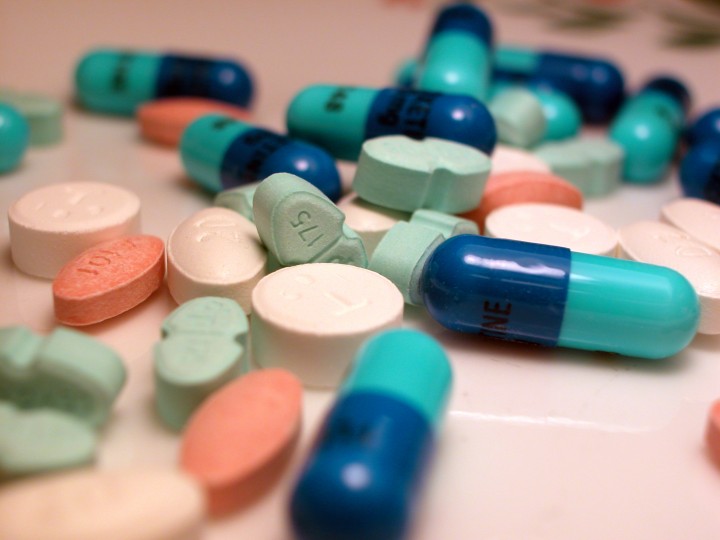TORONTO — While picking up your prescription at the pharmacy about 10 years from now, you may see a difference in the variety of drugs and their price tags.

Last week, Canada and the European Union unveiled their multi-billion-dollar trade pact that’ll shake up many Canadian sectors, including the pharmaceutical industry.
One clause brokered between Ottawa and Brussels would provide what’s called “patent term restoration” to big-name drug makers. Critics argue that the move blocks out generic drug companies, handing Big Pharma an extended monopoly that’ll leave consumers without a cheaper option.
Read more: Early winners and losers in ‘historic’ EU trade pact
They estimate that this two-year extension could result in Canadians losing millions of dollars a year.
“It’s changing the time before you get a generic version. It isn’t just the amount of money we’re giving to patented drug companies, but it’s also a question of the time period of market exclusivity we give as well,” Carleton University public policy professor Marc-Andre Gagnon told Global News.
How CETA is a game-changer for the pharmaceutical industry
CETA — or the Comprehensive Economic Trade Agreement — includes a maximum two-year patent extension to drug companies. This could take patent protection to 22 years from 20 in Canada. Read the overview of the agreement in principle here.
Read more: Canada’s new free-trade deal with EU concludes, ratification up to 2 years away
“If generics are delayed coming to market, it doesn’t take long for the costs to come up,” Jim Keon, president of the Canadian Generic Pharmaceutical Association, said.
- Canadian man dies during Texas Ironman event. His widow wants answers as to why
- On the ‘frontline’: Toronto-area residents hiring security firms to fight auto theft
- Honda’s $15B Ontario EV plant marks ‘historic day,’ Trudeau says
- Canadians more likely to eat food past best-before date. What are the risks?
“Two years doesn’t sound like a lot but the costs could be very high.”
The Canadian Health Coalition says that extending patents for drugs could increase the cost of public and private drug plans by at least $2.8 billion.
Read more: Canada losing out on negotiating lower drug prices, study says
This part of CETA is also helping Big Pharma with headquarters that are mostly based out of Europe (GlaxoSmithKline, Novartis, Bayer) and the United States (Pfizer, Johnson & Johnson, Merck).
There are Canadian subsidiaries of these companies that’ll thrive from CETA, but as far as Gagnon knows, the biggest pharmaceutical company in Canada is Ontario’s Apotex.
How patents work in Canada now
Currently, if a drug maker finds a novel compound, it’ll head to the Canadian patent office and file for a patent that’ll give the company a 20-year head start to work on what it thinks could be a new treatment.
The patent means no one else can make or sell that product as the drug maker goes through clinical trials, applying for Health Canada approval and bringing the treatment to market.
Read more: Will new trade pact with EU create jobs — or see them vanish?
In total, this could take from eight to 12 years to come together, depending on the novelty of the substance or who you’re talking to.
After that, the drug company with the patent in hand has an eight- to 12-year monopoly in selling its product before generic versions enter the market.
Generics don’t need to invest in research and development because the brand-name drug may have already been on the market for more than a decade.
Instead, the generic version needs to prove that it’s equivalent to the brand-name product in chemical makeup and reaction in the body.
It’s this two-year extension that Keon says has his members up in arms.
Keon takes Pfizer’s Lipitor, a cholesterol-lowering statin dubbed the best-selling drug in history, as a prime example.
Before Pfizer’s patent expired, it was making about $1.2 billion a year in Canada. Once generics entered the market, the health care system was spared $900 million a year.
Read more: We need new antibiotics. Who’s going to pay for them?
The generic version is only 18 per cent of the price of Pfizer’s brand name drug. Keon says that provinces regulate the price of generic drugs, but overall, they’re only a quarter of the brand-name price.
Ottawa hints at compensation to provinces
The federal government says it concedes that there will be “upward pressure” on pharmaceutical prices because of the agreement.
“However, it’s important to note that we don’t expect those to be large and we do not expect them to even begin for roughly a decade,” Prime Minister Stephen Harper said on Friday.
He said that Ottawa would compensate for any additional costs provinces need to deal with.
Read more: Canada’s seniors face high rates of hospitalizations from adverse drug reactions
A Foreign Affairs spokesman told Global News that generics will have the right to export their products around the world, keeping that stream of business untouched.
Gagnon estimates that those on public and private drug plans will have to deal with an inflated premium. But the real losers are those paying out of pocket.
“They’ll see the difference,” Gagnon warns.
carmen.chai@globalnews.ca
Follow @Carmen_Chai


Comments